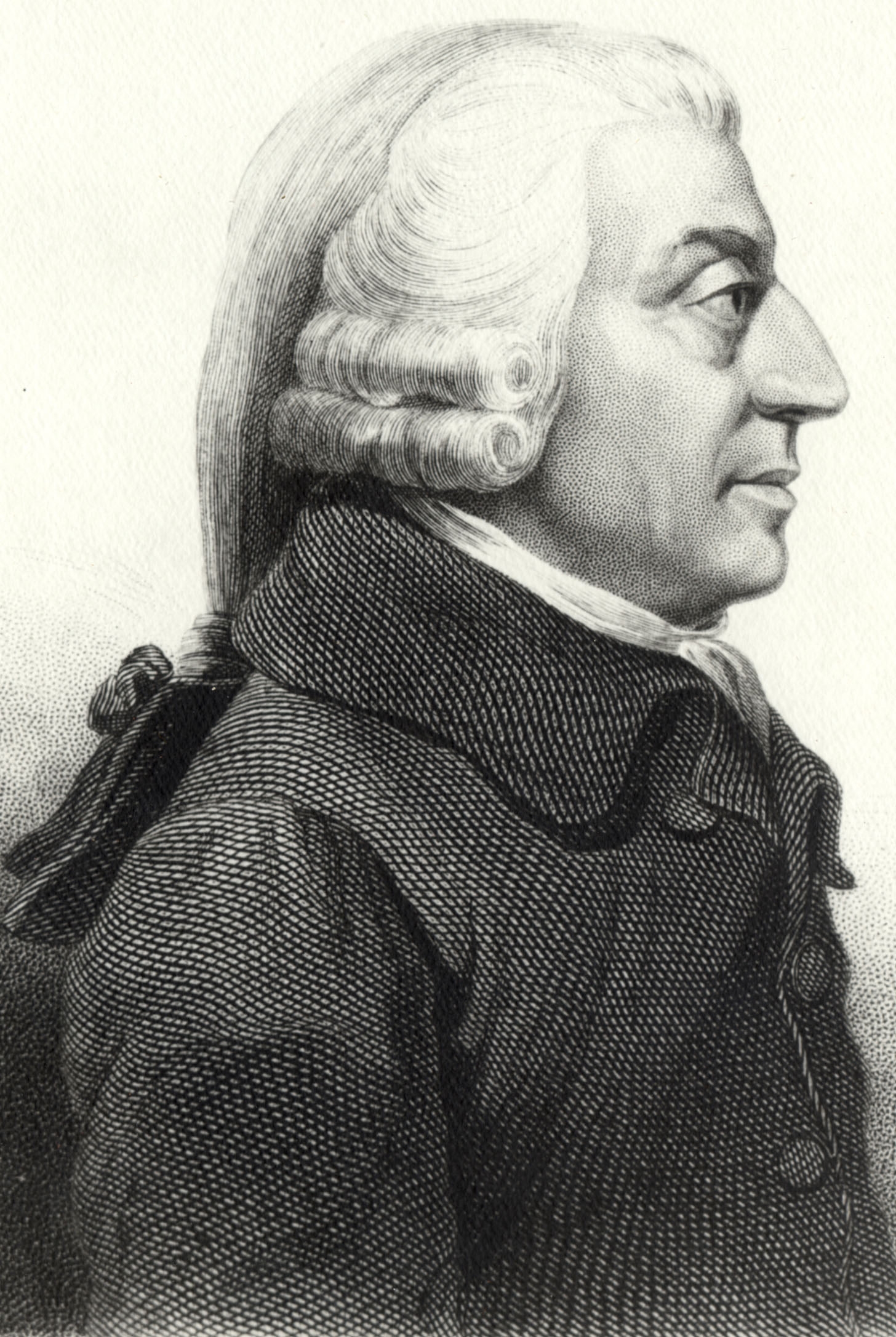Fuente: Smith, Adam. La riqueza de las naciones. Edición de Carlos Rodríguez Braun. Editor digital: Titivillus. Página 321
Fuente: La riqueza de las naciones, Libro IV.
Frases célebres de Adam Smith
Fuente: Citado en Amate Pou, Jordi.Paseando por una parte de la Historia: Antología de citas. Editorial Caligrama, 2017. ISBN 9788417321871. p. 43.
Fuente: La riqueza de las naciones
Fuente: Smith, Adam.La riqueza de las naciones, Libro I, Capítulo 8: De los salarios del trabajo, página 94.
Fuente: La riqueza de las naciones.
“En realidad, la atracción o el afecto no son más que simpatía de la costumbre.”
Fuente: Citado en Amate Pou, Jordi.Paseando por una parte de la Historia: Antología de citas. Editorial Caligrama, 2017. ISBN 9788417321871. p. 42.
Adam Smith Frases y Citas
An Inquiry into the Nature and Causes of the Wealth of Nations. Volume I
Adam Smith: Frases en inglés
Chap. I.
The Theory of Moral Sentiments (1759), Part III
Fuente: (1776), Book III, Chapter IV, p. 456.
Fuente: (1776), Book V, Chapter II, Part II, p. 894.
Fuente: (1776), Book IV, Chapter II
“II. The tax which each individual is bound to pay ought to be certain, and not arbitrary.”
Fuente: (1776), Book V, Chapter II, Part II, p. 892.
“All registers which, it is acknowledged, ought to be kept secret, ought certainly never to exist.”
Fuente: (1776), Book V, Chapter II, Part II, Appendix to Articles I and II, p. 935.
Section II, Chap. I.
The Theory of Moral Sentiments (1759), Part VII
Fuente: (1776), Book I, Chapter VIII, p. 87.
Section I, Chap. V.
The Theory of Moral Sentiments (1759), Part I
Section I, Chap. III.
The Theory of Moral Sentiments (1759), Part I
Fuente: The Wealth of Nations (1776), Book IV, Chapter II
Chap. I.
The Theory of Moral Sentiments (1759), Part IV
Section II, Chap. I.
The Theory of Moral Sentiments (1759), Part VI
Fuente: (1776), Book I, Chapter I
“the competition of the poor takes away from the reward of the rich.”
Fuente: (1776), Book I, Chapter X, Part II, p. 154.
Fuente: (1776), Book II, Chapter III, p. 381.
“All money is a matter of belief.”
https://www.amazon.com/All-money-matter-belief-quotes/dp/B01M0HLG6B
Attributed
Section II, Chap. II.
The Theory of Moral Sentiments (1759), Part II
“Corn is a necessary, silver is only a superfluity.”
Fuente: (1776), Book I, Chapter XI, Part III, (First Period) p. 223.
Fuente: (1776), Book V, Chapter III, Part V, p. 1032 (Last Page).
Chap. I.
The Theory of Moral Sentiments (1759), Part IV
Fuente: (1776), Book I, Chapter V, p. 50.
Fuente: (1776), Book I, Chapter XI, Part III, (Conclusion..) p. 282.
Chap. III.
The Theory of Moral Sentiments (1759), Part III
Fuente: (1776), Book IV, Chapter III, Part II, p. 530.
Section II, Chap. I.
The Theory of Moral Sentiments (1759), Part II
Fuente: (1776), Book IV, Chapter V, p. 563.
